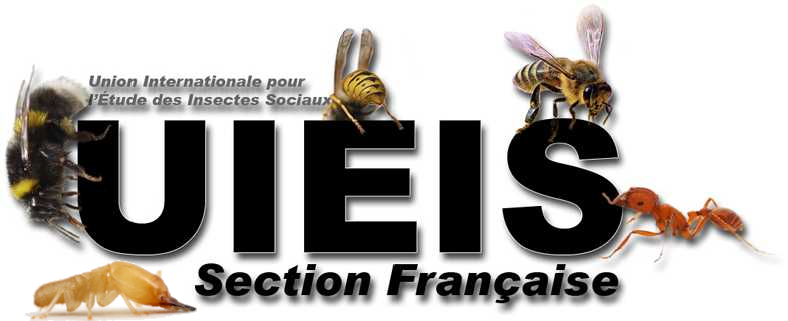POSTDOC: THE GENOMIC BASIS OF SOCIAL NICHE CONSTRUCTION DURING COLONY FOUNDING, MÜNSTER, GERMANYDeadline for applications: 6 January 2022The Institute for Evolution and Biodiversity at the University of Münster, Germany, is seeking to fill the position of a Postdoctoral Research Associate (Wissenschaftliche/r Mitarbeiter/in – salary level TV-L E 13, 100%) from the earliest possible date. The position is within the externally funded project SFB/TRR 212. We are offering a fixed-term full-time position until 31 December 2025 corresponding to the duration of the project.Your tasks:The position is part of the Collaborative Research Centre (SFB/TRR 212) entitled « A Novel Synthesis of Individualisation across Behaviour, Ecology and Evolution: Niche Choice, Niche Conformance, Niche Construction » (NC3: https://www.unibielefeld. de/fakultaeten/biologie/forschung/verbuende/sfb_nc3/3) and funded by the German Research Foundation (DFG).The project focuses on the genetic, epigenetic and transcriptomic basis of social niche construction during colony founding. Individual Pogonomyrmex californicus ant queens can choose to start a new colony alone (haplometrosis) or they can join or accept other co-founding queens (pleometrosis). During the first two weeks of colony founding, co-founding queens interact in multiple ways and so construct their individualized social niche. They either accept additional queens or they evict/kill them. Matched interactions, where pleometrotic queens interact with each other, lead to a fitness gain whereas mismatched interactions, where haplometrotic and pleometrotic queens interact, lead to a fitness loss (for one or both). The frequency of these alternative founding strategies varies within and among subpopulations. The first funding period revealed the genomic and genetic architecture of this social niche polymorphism. In the second funding period, we will focus on three aims.Confirming and experimentally testing candidate genes and epigenetic mechanisms (histone modification and DNA methylation), that we identified in the first funding period.Develop a generalized evolutionary framework/model that takes into account the relation between genotype, phenotype, individualized social niche and fitness.Understand why colony founding above a certain number of cofounding pleometrotic queens will always fail. Is this a constraint (division of labour) or an adaptation (spitefulness) in the context of the evolution of pleometrosis.The successful candidate will conduct behavioural field and laboratory studies in cooperation with Prof Jennifer Fewell (Arizona State University) in Arizona and California. The secondary emphasis will be on transcriptomic, genomic and epigenetic studies using a variety of methods (dsRNAi, ATACseq, ChIP-seq and pharmacological interventions). Hence practical familiarity and experience with some genomic techniques and bioinformatic tools is required (ideally demonstrated through publications).Our expectations:The successful candidate will be a highly motivated scientist, interested in interdisciplinary work in the framework of the NC3 network. They will have a doctoral degree (or a comparable qualification) in biology, preferentially with a focus on evolution, behavioural ecology, sociobiology, genomics, epigenetics or another related field. They will also have a background, and ideally some postdoctoral experience, in at least two of the following areas: working with live insects, molecular lab skills, genomics/transcriptomics and bioinformatics. They will have excellent communication skills and be able to work both independently and as part of a multidisciplinary team. The working language of the Institute and the lab is English, and good proficiency in spoken and written English is a requirement. German language skills are not a requirement, but a willingness to learn is desirable.Advantages for you:The Institute for Evolution and Biodiversity provides a stimulating research environment with a number of scientific groups researching diverse topics centred on different aspects of evolution. As a part of the Collaborative Research Centre SFB/TRR 212 the project will involve intensive collaboration with consortium partners at the Universities of Münster and Bielefeld. The University of Münster is an equal opportunity employer and is committed to increasing the proportion of women academics. Consequently, we actively encourage applications by women. Female candidates with equivalent qualifications and academic achievements will be preferentially considered within the framework of the legal possibilities. The University of Münster is committed to employing more staff with disabilities. Candidates with recognised severe disabilities who have equivalent qualifications are given preference in hiring decisions, although some restrictions related to the access to field sites may apply. Positions can generally be filled as part-time positions if there are no compelling work-related reasons against doing so.Are you interested?Then we look forward to receiving your application, written in English, in one single PDF file, by 6 January 2022. Applications should be sent to Prof Jürgen Gadau at: gadauj@uni-muenster.de. Please note that we cannot consider other file formats. Applications should include 1) a cover letter with a statement of research interests and motivation (max. 1 page), 2) a CV including details about research experience and publications, and 3) contact details for at least two referees.45,000 students and 8,000 employees in teaching, research and administration, all working together to shape perspectives for the future – that is the University of Münster (WWU). Embedded in the vibrant atmosphere of Münster with its high standard of living, the University’s diverse research profile and attractive study programmes draw students and researchers throughout Germany and from around the world.
